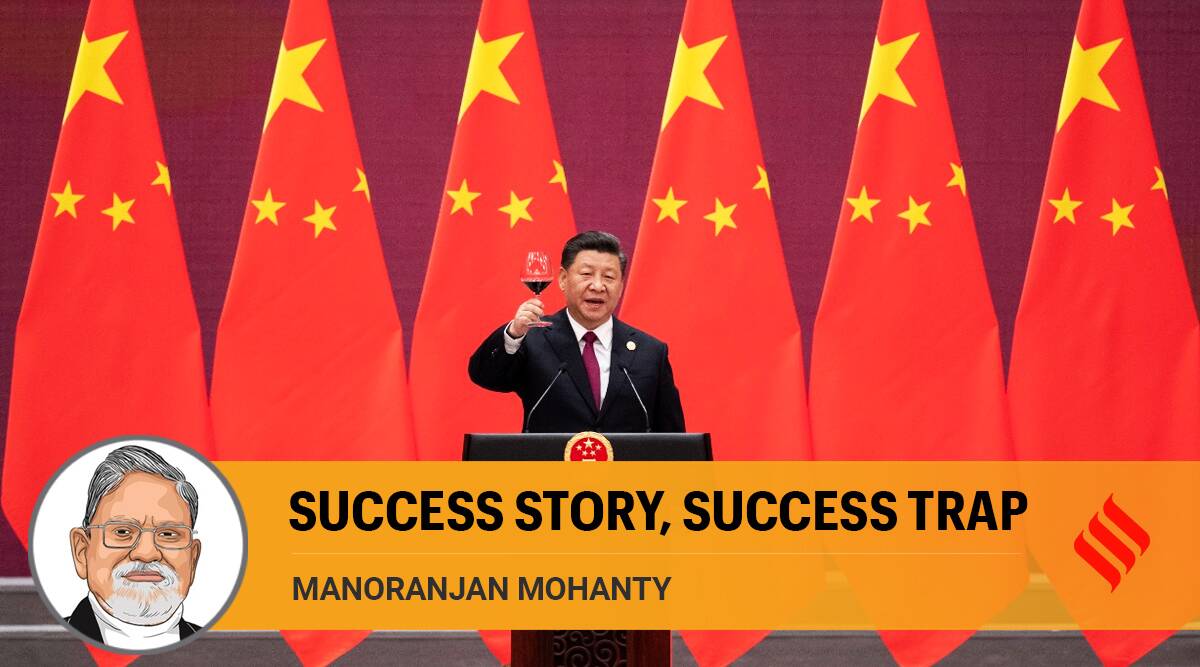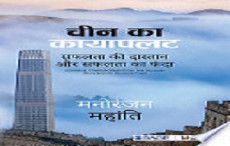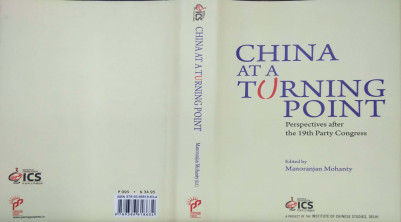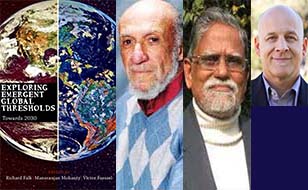People > Manoranjan Mohanty
Manoranjan Mohanty was a Professor of Political Science and Director of, Developing Countries Research Centre at the University of Delhi where he taught Comparative Politics, Chinese Politics and Research Methodology. Currently, he is a Distinguished Professor at the Council for Social Development, New Delhi, where until recently he edited the CSD-Sage journal Social Change. He is a social scientist, China scholar and a peace and human rights activist with research interest in the study of the Political Economy of China, India and global transformation. He is an Emeritus Fellow of the Institute of Chinese Studies, its founding member and former Chairperson. He is also the Emeritus Chairperson, Development Research Institute, Bhubaneswar, the research wing of Gabeshana Chakra of which he was the founder-president. He has had academic assignments in many institutions abroad including in California, Beijing, Moscow, Lagos, Copenhagen and Oxford. He has done extensive research on modern China and India including on the Chinese Revolution, the Political Economy of China, People’s Movements in India and Poverty in Odisha. He has authored, among others, The Political Philosophy of Mao Zedong (1978, 2009, Hindi edition 1979, 2010)); Red and Green: Five Decades of the Maoist Movement in India (2014 incorporating Revolutionary Violence published in 1977); Contemporary Indian Political Theory (2000); Ideology Matters: China from Mao Zedong to Xi Jinping (2016, Hindi edition 2021). His publication is based on a thirty-year study of China’s reforms with a focus on Wuxi is China’s Transformation: The Success Story and the Success Trap (Sage: 2018), Hindi edition Cheen ka Kayapalat (Sage Bhasha, 2020). He has been a part of several national and international research projects and academic initiatives leading to research papers and edited or coauthored volumes such as Chinese Revolution: Comparative Perspectives (1993); People’s Rights: Social Movements and the State in the Third World (1998); Class, Caste and Gender (2004); Grass-roots Democracy in India and China (2007); Weapon of the Oppressed: An Inventory of People’s Rights in India (2009); India: Social Development Report 2010 (2010); A Fistful of Dry Rice: Land, Equity and Democracy: Essays in Honour of D Bandyopadhyay (2012); Building a Just World: Essays in Honour of Muchkund Dubey (2015); Exploring Emerging Global Thresholds: Towards 2030 (2017); China at a Turning Point: Perspectives after the Nineteenth Party Congress (2019); and Migration, Workers and Fundamental Freedoms: Pandemic Vulnerabilities and States of Exception in India (2021). He has contributed to many Handbooks and Encyclopaedias the latest being the essay, Inequality: Perspective from the Global South in Oxford Handbook of Global Studies (2020). He has published books and articles in Odia as well. He has been an active member of the People’s Union for Democratic Rights, Delhi since its inception and also of Pakistan-India People’s Forum for Peace and Democracy. He is part of the Bandung Spirit Network and a founding member of the Global University of Sustainability.

The Communist Party of China (CPC), which observed the centenary of its founding on July 1 with a very assertive speech by Xi Jinping

The book provides insights into the economic and social transformation that China has undergone from 1979 to the present.

The People’s Republic of China under the leadership of Xi Jinping is undergoing rapid changes at the present time. The nature of these changes was evident during the 19th Party Congress of 2017 and unfolded swiftly thereafter. This volume, produced by a group of 25 China experts of India associated with ICS, offers a detailed examination of Xi Jinping’s initiatives in the context of what was proclaimed as a ‘new era’.

his chapter discusses the concept of inequality and the various meanings associated with it. How the problems of economic and social inequalities have been addressed in the Global South is also discussed.

Newsclick spoke to Prof. Manoranjan Mohanty about the recent informal summit between Indian Prime Minister Narendra Modi and Chinese President Xi Jinping.

The Wire spoke to eminent China scholars for their views on the upcoming 'informal' India-China summit in Wuhan.

The book provides insights into the economic and social transformation that China has undergone from 1979 to the present.

Our current era can be described as the beginning of a new, historical phase of the ‘Anthropocene’age, where humans are becoming increasingly conscious of the effects of their actions on nature,culture, and human relationships. As the first section shows, this realisation is acquiring greater significance in current development discourse and policymaking, particularly in Asia, Africa, and Latin America. The fate of the human species rests on a sustainable collaboration with nature, as is apparent by the impact of climate change on food, energy, and water.

What the Latest Session of China’s Parliament Tells Us About the Challenges Xi Confronts

That India’s Prime Minister Mr Narendra Modi decided not to attend the Sixtieth Anniversary celebration of the Bandung Conference...
Chinese Politics, Comparative Development Studies
© 2019 ICS All rights reserved.
Powered by Matrix Nodes